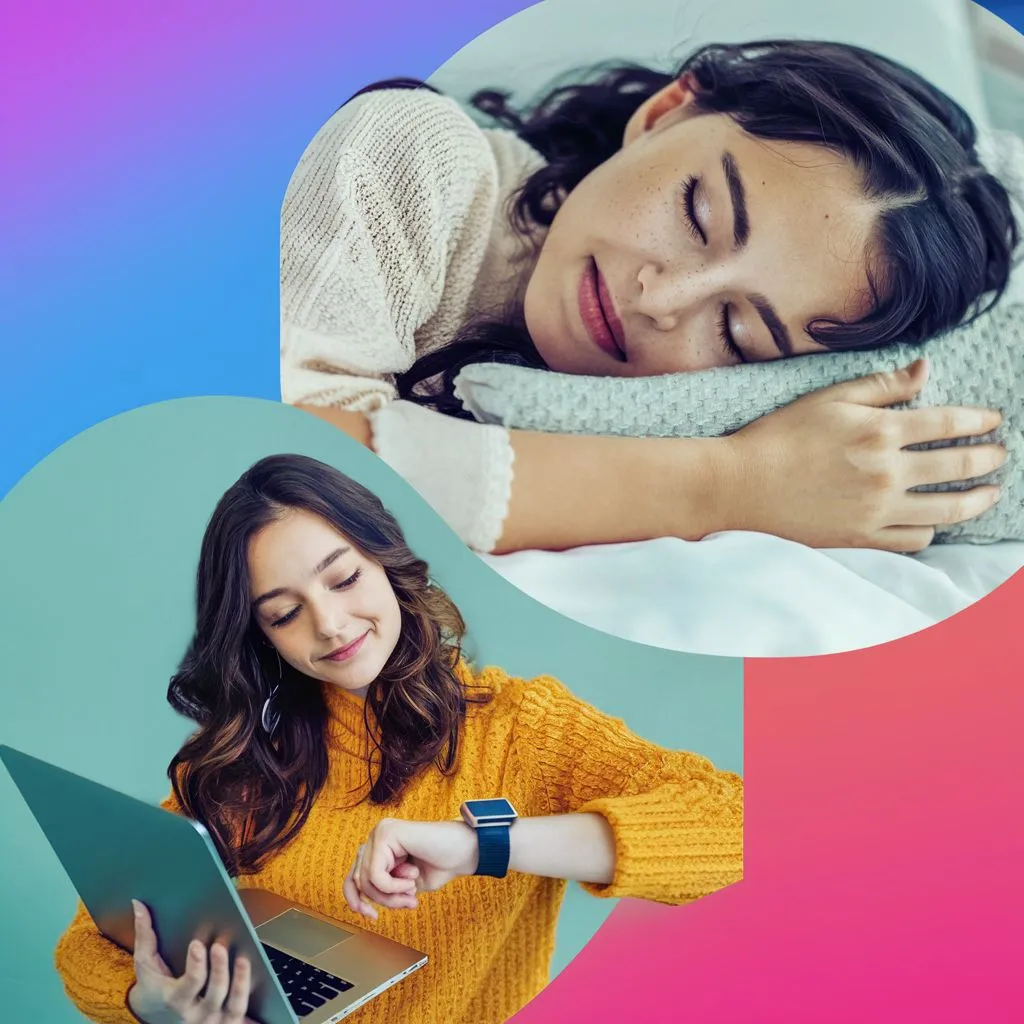
Are you having trouble sleeping those Zzzs? You’re not by yourself. Examine the causes and effects of sleep deprivation in today’s world and learn valuable strategies for regaining your sleep and maintaining healthy sleeping habits.
become unreachable for many in today’s fast-paced, hyperconnected world. Chronic insomnia has become an epidemic due to factors like long screen times, busy schedules, and life expectations.
In addition to exploring the causes and effects of sleep deprivation, this article provides helpful advice on prioritizing getting enough quality sleep for improved health and well-being.
To understand lack of sleep:
Lack of sufficient sleep is always the cause of sleep deprivation. Adults should sleep up to eight hours every night, yet an essential portion of the population needs to follow this standard.
Moreover, a persistent lack of sleep has several adverse effects on our mental and physical well-being, such as:
Intellectual function:
Lack of sleep harms memory, focus, and judgment.
Physical health:
Reduces immunity and raises the risk of long-term conditions like diabetes, obesity, and heart disease.
Mental health:
Lack of sleep can exacerbate symptoms, including mood swings, anxiety, and sadness.
Addressing the Never-Sleeping Generation:
A diverse strategy is needed to tackle the widespread issue of sleep deprivation. The following practical advice can assist you in making sleep a priority and getting more excellent rest:
Create a regular sleep schedule:
Even on weekends, go to bed and wake up regularly to adjust your body’s natural sleep-wake cycle.
Establish a quiet bedtime routine:
by doing peaceful activities like reading, having a hot bath, or practicing relaxation techniques before bed.
Create the ideal sleeping environment:
To encourage sound sleep, ensure your bedroom is chilly, dark, and undisturbed.
Limit your time spent on display screens before bed:
because the blue light that these devices emit can interfere with your sleep. At least one hour before bed, stay away from monitors.
Establish healthy sleep habits:
Work out frequently, but avoid doing anything demanding just before bed. Keep up a nutritious diet and limit your intake of alcohol and caffeine, especially at night.
Advanced Techniques for the Generation That Can’t Sleep:

Although the previously mentioned suggestions offer a solid basis for improved sleep, the following are some advanced tactics for those who deal with continuous sleep issues:
Cognitive Behavioral Therapy for Insomnia (CBT-I):
This evidence-based treatment helps identify and address harmful beliefs and actions contributing to sleep issues. To help you sleep better, a therapist can also guide you on relaxation techniques, sleep scheduling, and cognitive restructuring.
Light therapy:
Being in bright light during the day helps balance your biological cycle, which facilitates falling asleep at night. Think about using a light cure box or going outside during the day to spend time in the sun.
Mindfulness and Meditation:
These techniques can promote relaxation and improved sleep by calming the mind and releasing stress. To get you started, many guided meditations and mindfulness exercises are available online or through apps.
Relaxation Methods:
Progressive muscle relaxation and deep breathing can help reduce stress and prepare your body for sleep. Investigate several nap techniques and choose the one that suits you the most.
Establishing a Sleep Haven:
Invest in earplugs, blackout curtains, a cozy bed, and pillows to develop a sleep-friendly atmosphere. Recall that consistency is essential! If you use those tactics regularly over time, your chances of achieving and maintaining healthy sleep patterns will increase.
Additionally:
Seek professional assistance:
To rule out any underlying medical conditions and increase a personalized treatment strategy, consult a medical doctor or sleep specialist if you still have trouble falling asleep after trying those measures.
Promote healthy sleeping habits:
Increase awareness of the value of sleep and motivate people to incorporate healthy sleeping practices into their daily routines.
People and communities may fight the sleep loss epidemic and embody a healthy lifestyle for a more fit and rested future by taking a comprehensive approach and using such strategies.
Technology Helping the Restless Generation in Sleep Deprivation:
Not all of the battle against sleep deprivation is won by personal initiative. Technological developments are also a significant factor in promoting restful sleeping habits. These modern technologies are as follows:
Apps for Measuring Sleep:
These apps show sleep patterns using wearable technology or cellphones, providing information on the optimal times to sleep, when to go to bed, and when to wake up. This information can assist people in determining possible areas for improvement and modifying their sleep schedules accordingly.
Smart Sleep Devices:
These devices, which range from temperature-regulating beds to noise-canceling headphones, can optimize the sleeping environment by reducing noise, changing the temperature of the room, or filtering out distractions.
Apps for Better Sleep:
These applications provide calming soundtracks, guided meditations, and nighttime memories to help you relax and sleep better.
Sleep Disorders and Telemedicine:
Telehealth systems allow patients to connect with sleep specialists from a distance and create customized treatment regimens. It can offer convenient access to sleep-related information for people living in underserved areas or with limited mobility.
But it’s essential to use these technologies sensibly. Over-reliance on sleep-tracking applications can lead to compulsive behaviors and anxiety. Organizing good sleep hygiene is crucial, and the era should only be used as a supplement to healthy sleeping habits rather than a replacement.
The Future of Sleep:
There is a lot of hope for the future of sleep. To address sleep-related problems, researchers are constantly investigating new technologies and treatment approaches. These enhancements could potentially include:
Harmless sleep tracking:
This method screens sleep quality without using wearable technology by using cutting-edge sensors. Modern medications and devices that have increased effectiveness and reduced side effects for sleep disorders are examples of advanced sleep therapies.
Moving Beyond Individual Responses: Handling the Systemic Sleep Epidemic.
While individual initiatives and technological advancements are essential in promoting restful sleep, combating the sleep problem will require a systemic solution. Calls for taking care of a few critical issues:
1. Workplace Culture:
Flexible work schedules:
Employers should provide flexible work schedules and discourage behaviors that lead to sleep deprivation, such as sending emails at midnight or setting unrealistic targets.
Considering employee well-being first:
Encouraging restful sleep habits via educational seminars, access to leisure resources, and counseling for sleep-related concerns can improve employee well-being and output.
2. Education and Awareness:
Integration of school curricula:
Teaching kids and teenagers the value of sleep and good sleep hygiene early can help them develop healthy sleeping habits that last a lifetime.
Public fitness campaigns:
Encouraging individuals to prioritize sleep by educating them about the risks of sleep loss and by supporting good sleep hygiene practices.
3. Policy and Law:
Restricting screen time in public areas:
Introducing laws that limit screen usage in favorable public locations, particularly before bedtime, can improve everyone’s ability to get a good night’s sleep.
Workplace sleep rights:
Fighting for regulations that uphold employees’ rights to adequate rest and forbid unreasonable work hours or unpleasant schedules.
The Ripple Effect: Strengthening People and Societies:
Even if the solutions offered address a variety of stakeholders, it’s crucial to remember that people have the power to bring about positive change in their communities. The following are some ways that people might help fight sleep deprivation:
Become an endorse for sleep:
Act as an advocate for sleep by informing loved ones, friends, and colleagues about the importance of getting enough sleep and the risks associated with skipping it. Motivate people to prioritize getting enough sleep and to adopt healthy sleeping habits.
Encourage sleep-friendly companies:
Support companies that value employee well-being and offer flexible work schedules.
Promote policy trade:
Speak with local officials and support regulations encouraging restful sleep, such as limits on screen usage in public areas or work schedule requirements.
Launch a sleep awareness campaign:
Plan online debates, workshops, or network events to increase awareness of sleep hygiene and getting enough sleep for overall health.
Here are some suggestions to help prevent problems with sleep:
Maintain a regular sleep schedule:
going to bed and waking up simultaneously every day, including on the weekends. Modifying your body’s regular sleep-wake cycle makes it easier to fall asleep and wake up feeling rejuvenated.
Create a relaxing routine for bedtime:
Before going to bed, unwind with activities that promote relaxation, such as reading, taking a warm bath, deep breathing, meditation, or listening to relaxing music. Steer clear of stimulating activities like using digital devices just before bed, watching TV, and using them.
Improve the conditions in which you sleep:
Ensure your bedroom is calm, quiet, dark, and clutter-free. Invest in cosy bedding, pillows, earplugs, blackout curtains, and a comfortable temperature.
Limit the quantity of time spent on screens before bed:
An electronic device’s blue light can throw off your sleep schedule. Don’t use screens for at least one hour before going to bed.
Create healthy sleeping routines for managing sleep deprivation:
Work out frequently:
Engaging in physical activity might enhance the quality of your sleep, but avoid intense activities right before bed.
Continue your nutritious diet:
Avoid large meals and sugary drinks right before bed.
Restrict alcohol and caffeine intake:
Although caffeine can boost strength, consuming it too late in the day may interfere with sleep. Additionally, alcohol may initially put you to sleep, but it can also mess with your sleep schedule later in the evening.
Control stress:
Prolonged stress might be a factor in sleep problems. Seek healthy methods of managing stress, such as practising yoga, meditation, or going outside.
Seek professional assistance:
Speak with a healthcare provider or sleep specialist if you struggle with sleep issues despite trying different lifestyle modifications. They can assist in identifying any underlying medical problems and extending a personalized treatment strategy.
Additional recommendations:
Receive regular exposure to sunlight:
Sunlight helps you to alter your circadian cycle, which makes it easier to fall asleep at night.
Steer clear of falling asleep during the day:
Midnight naps can be hampered by prolonged naps taken throughout the day.
Avoid going to the mattress overly full or hungry:
You can fall asleep faster if you eat a light snack before bed, but avoid heavy foods.
If you are unable to fall asleep, relax on your mattress:
After twenty minutes, if you still can’t fall asleep, get out of bed and do something fun until you feel exhausted. Avoid lying in bed while stressed out for extended lengths of time since this might cause you to associate your mattress with frustration and make it harder for you to fall asleep in the future.
Remember that those are merely trendy suggestions; what suits one person could not suit another. It’s essential to figure out what sleep routine works best for you and stick to it.
In conclusion, a future with more sleep

The battle against sleep deprivation is an ongoing journey rather than a single confrontation. By recognizing the issue’s complexity, accepting personal accountability, pushing for structural change, and empowering communities, we can build a future where getting enough sleep isn’t necessarily a luxury but a fundamental right. Working together, being persistent, and being committed to creating a sleep habit that puts everyone’s health first would be necessary.
Recall that prioritizing sleep is not a sign of weakness but instead of strength and a commitment to thrive in a world that needs our best selves. Making sleep a priority will help us reach our most significant potential, cultivate healthier communities, and build a better future for future generations.
